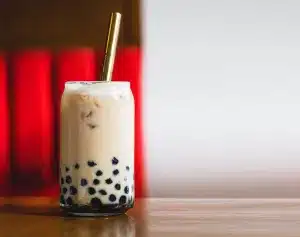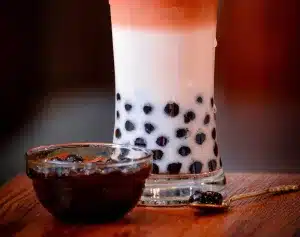Is Bubble Tea Halal?

Bubble tea is a popular drink all over the world. But is it Halal?
Bubble tea combines tea, milk, and chewy tapioca pearls into one drink. People enjoy it during work breaks, social catch ups, or while studying. Over time, it has become a favourite for millions. As bubble tea grows in popularity, many people ask an important question. Is bubble tea Halal?
What is Halal and why does it matter?
According to the Islamic Food and Nutrition Council of America (IFANCA), Halal is an Arabic word that refers to foods and ingredients that are permissible under Islamic Law. Foods that do not meet these rules are classed as Haram. Think of pork and alcohol. Not only pork and alcohol are haram, but also certain derivatives such as gelatin. (IFANCA)
According to academic food science research, the Halal certification process assesses ingredient sources, manufacturing methods and compliance with Islamic dietary laws to ensure food products meet both religious and food safety standards.
Research shows that not only Muslims but also non‑Muslim consumers are increasingly choosing Halal products because they associate them with transparency, quality, ethical sourcing and hygiene. With over a billion Muslims worldwide offering Halal options helps keep bubble tea menus inclusive and accessible.
Can Bubble Tea be Halal?
Some people feel surprised by the idea of bubble tea being Halal. Bubble tea originated in Taiwan and spread across Southeast Asia. Because of this, some assume it may not follow Halal guidelines. A closer look shows this is not the case. Bubble tea itself does not determine its Halal status. The ingredients used matter most. You should still check toppings and flavourings to ensure everything meets Halal requirements. The products most likely at risk of Haram are those which could contain animal-derived gelatin like tapioca balls.
Is Bubble Tea Halal?
The short answer is, yes, bubble tea can be Halal. However, it depends on the ingredients. All of Taipec's popping bobas and flavoured syrups are Halal. But as always, check individual ingredients when adding toppings or flavourings.
For more insights into bubble tea, explore our other blog posts.


